Green budgeting an investment for the future
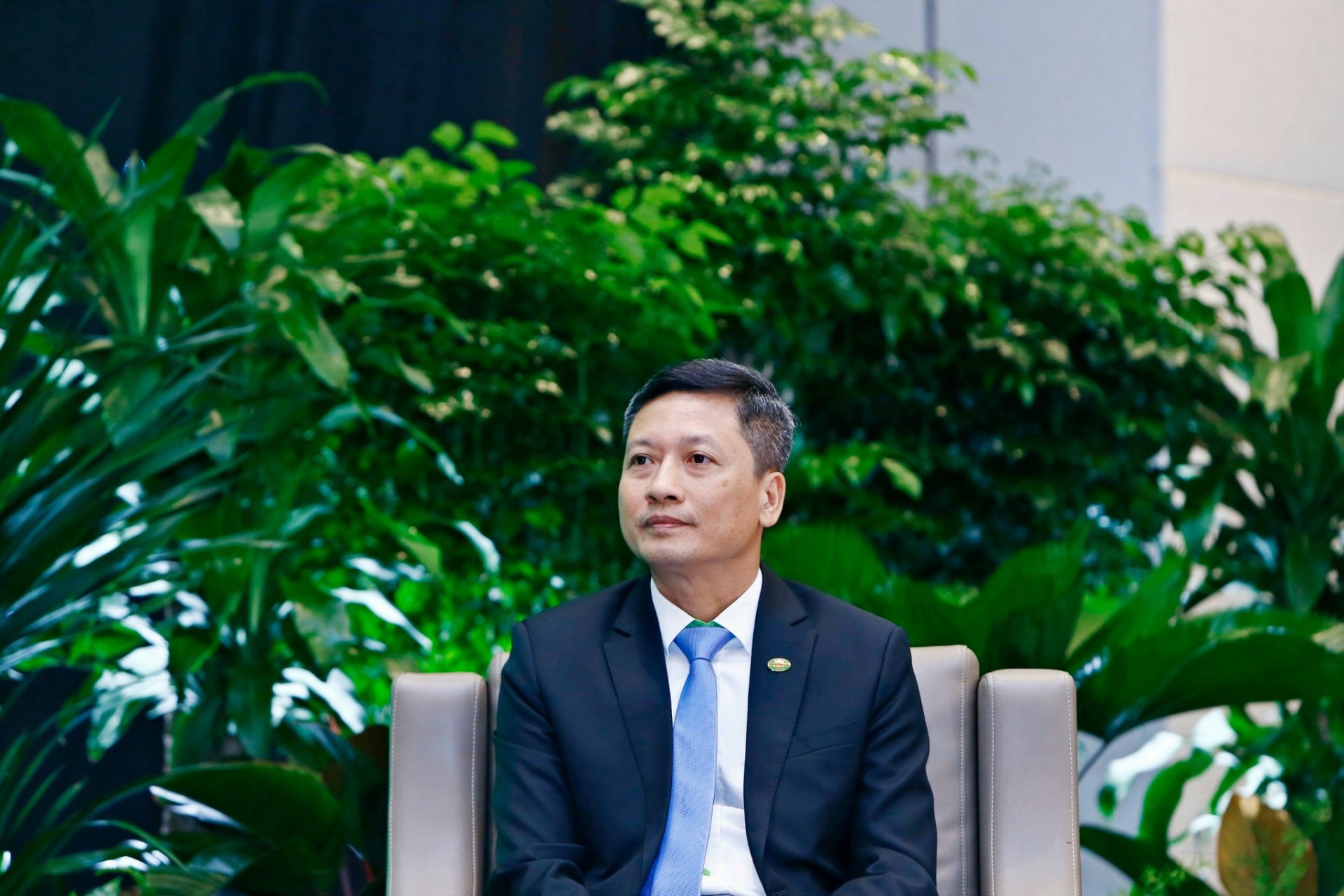 |
| Nguyen Van Thuc, deputy general director of Tien Phong Plastic |
As global attention increasingly focuses on environmental sustainability, Tien Phong Plastic is emerging as a frontrunner in the plastic industry's shift towards eco-friendly practices.
We are making significant strides towards achieving net-zero emissions, a goal that balances the amount of greenhouse gases produced, and the amount removed from the atmosphere.
Together with our fellow plastic manufacturers, we are actively working to change the negative perceptions associated with plastic. We are dedicated to dispelling the societal misconception that plastic equates to environmental pollution. Tien Phong Plastic, producing about 100 tonnes of plastic annually, is at the forefront of implementing solutions to protect the environment and ensure the health of its workers.
With the move to a new facility, Tien Phong Plastic has synchronised its wastewater treatment systems since 2021. The company conducts quarterly inspections with the Hai Phong City Department of Natural Resources and the Ministry of Industry and Trade's Health Centre to rigorously check various standards.
We have been successful in significantly reducing waste by-products. We have boldly replaced lead stabilisers in PPC production, despite the higher costs and state permissions, demonstrating its commitment to safer and more sustainable production methods.
Tien Phong Plastic has also invested in new, energy-efficient equipment that meets European standards and has incorporated solar power systems into its operations. In 2022, we installed rooftop solar panels at one of our factories, and between 2023 and 2024, we are expanding to install larger systems.
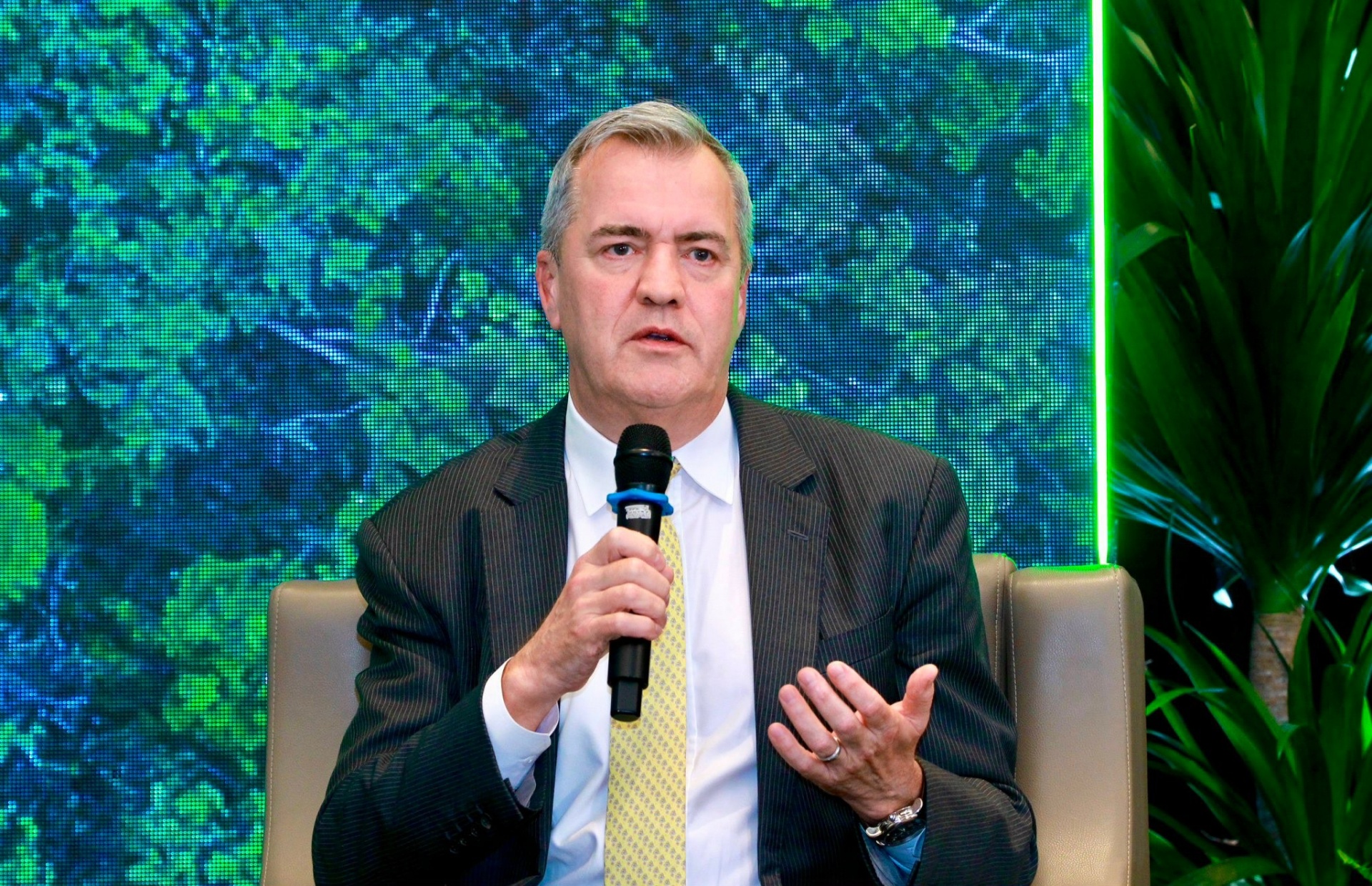 |
| Steven Wolstenholme, president and CEO, Hoiana |
For Hoiana, investing in human capital is increasingly recognised as not just beneficial but essential. Central to this strategy is the cultivation of respect - for individuals, colleagues, guests, and vitally, for the community, family, and country. These values form the bedrock of our sustainable initiatives.
At the heart of our strategy is a commitment to genuine decision-making, where employees at all levels are encouraged to act with integrity. While cost-saving is a valid business goal, we balance this with a sense of responsibility towards our broader societal impact.
Specifically, our training programmes are tailored to ensure employees understand and sincerely implement sustainable development practices, with a focus on 'paying it forward' to their families and communities. This approach is not confined to high-level executives, but is a company-wide ethos.
Our aim is to foster a culture where every individual, regardless of their position, can contribute to sustainable practices.
In addition to training, Hoiana actively promotes and financially supports employee-led initiatives, particularly in the realm of corporate social responsibility (CSR). Examples include beach clean-ups and waste collection efforts, demonstrating the firm's commitment to environmental stewardship.
An exciting development in their portfolio is the Hoiana project, where out of the 1000 hectares approved, 200 ha are currently under development. Furthermore, we are contributing to flood control efforts, showcasing its dedication to tackling environmental challenges.
This holistic approach to human capital investment exemplifies a shift in business priorities, where financial success and social responsibility are not seen as mutually exclusive but as complementary and mutually reinforcing.
Our strategy underscores the growing recognition in the corporate world of the importance of sustainable practices, not just for the environment, but also for the long-term viability and success of the business itself.
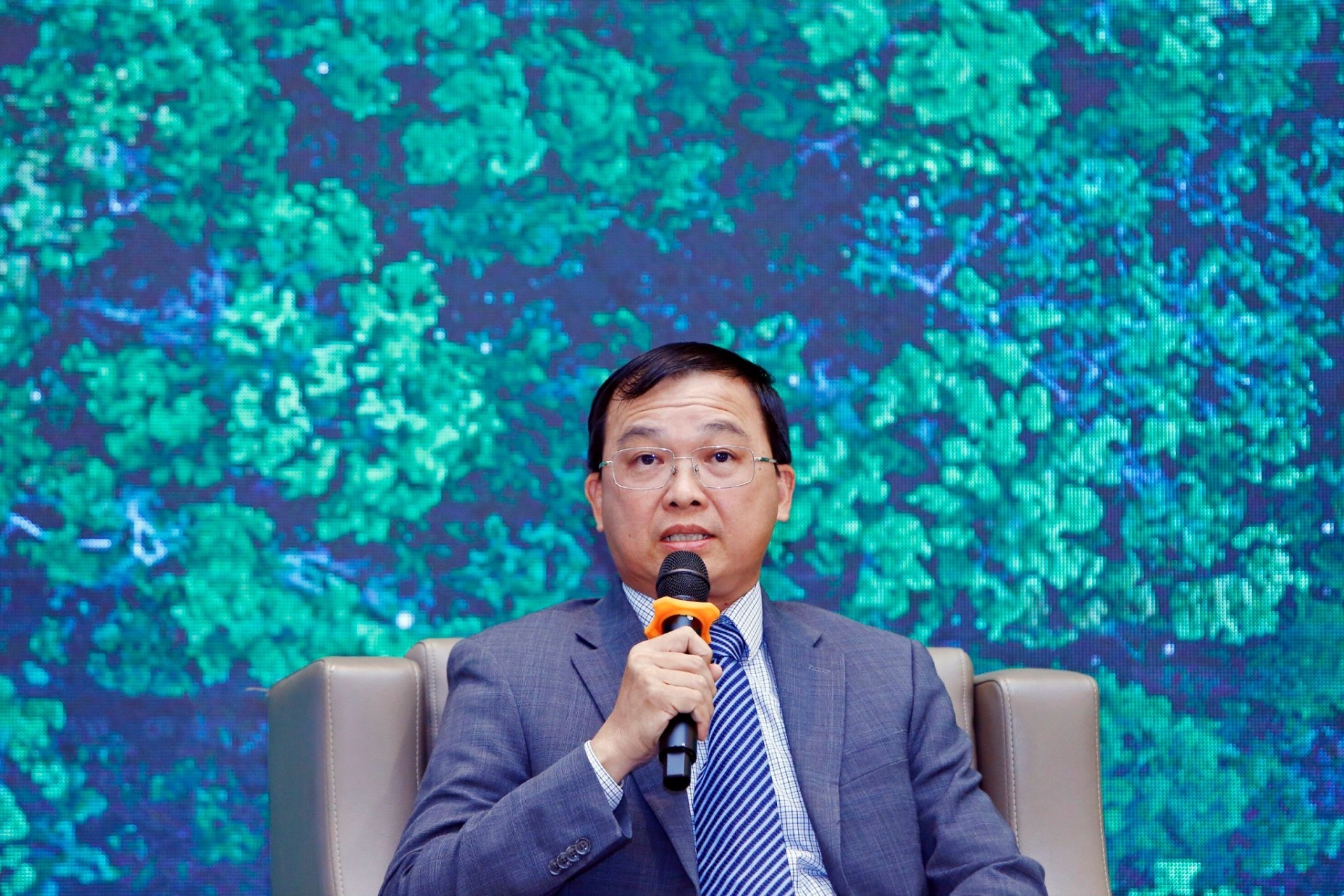 |
| Le Thanh Liem, executive director of Finance at Vinamilk |
Two decades ago, Vinamilk began building its wastewater treatment system and odour control facilities. At that time, our focus wasn't explicitly on sustainable development, but rather on adhering to legal regulations. Nonetheless, this required a substantial financial investment.
In recent years, with the concerted efforts of the government, the business community, and citizens, along with partners, sustainable development has gained more prominence.
Businesses are increasingly allocating significant funds towards sustainable development and the goal of achieving net-zero.
The leadership at Vinamilk views sustainable development and the pursuit of net-zero as a long journey, necessitating a specific roadmap. Only with a clear roadmap can we allocate resources and budget effectively for investments.
Vinamilk's initial years of transformation involved substantial investment. However, these investments were within the company's control. It's crucial to invest now, as failing to do so could dramatically alter Vinamilk's image in 5-7 years.
In terms of our sustainability strategy, we operate across two main sectors: livestock and production-business.
In livestock, Vinamilk manages over 14 farms nationwide, using waste from cattle to generate energy. Our entire wastewater and manure system employs a biogas circulation system to produce energy, complemented by solar power.
For example, at the Tay Ninh farm, spanning 680 ha, 500 ha are dedicated to greenery and cattle feed. Growing grass is a key activity in neutralising the carbon footprint of our livestock operations.
In the production sector, packaging is a critical focus. Vinamilk's diverse product range uses various packaging materials like plastic, paper, and tin.
We are in active discussions with our suppliers to use recyclable, eco-friendly packaging. While a complete transition can't be achieved overnight, we have a five-year plan in place.
Another challenge is measuring indicators for assessment and reporting, ensuring transparency and objectivity. We are collaborating with an international organisation to provide a direct software connection for measuring and compiling reports, aiding in our continuous improvement efforts.
In our 2022-2026 strategic phase, sustainable development is a main pillar, underscoring our ongoing commitment to environmental and social responsibility.
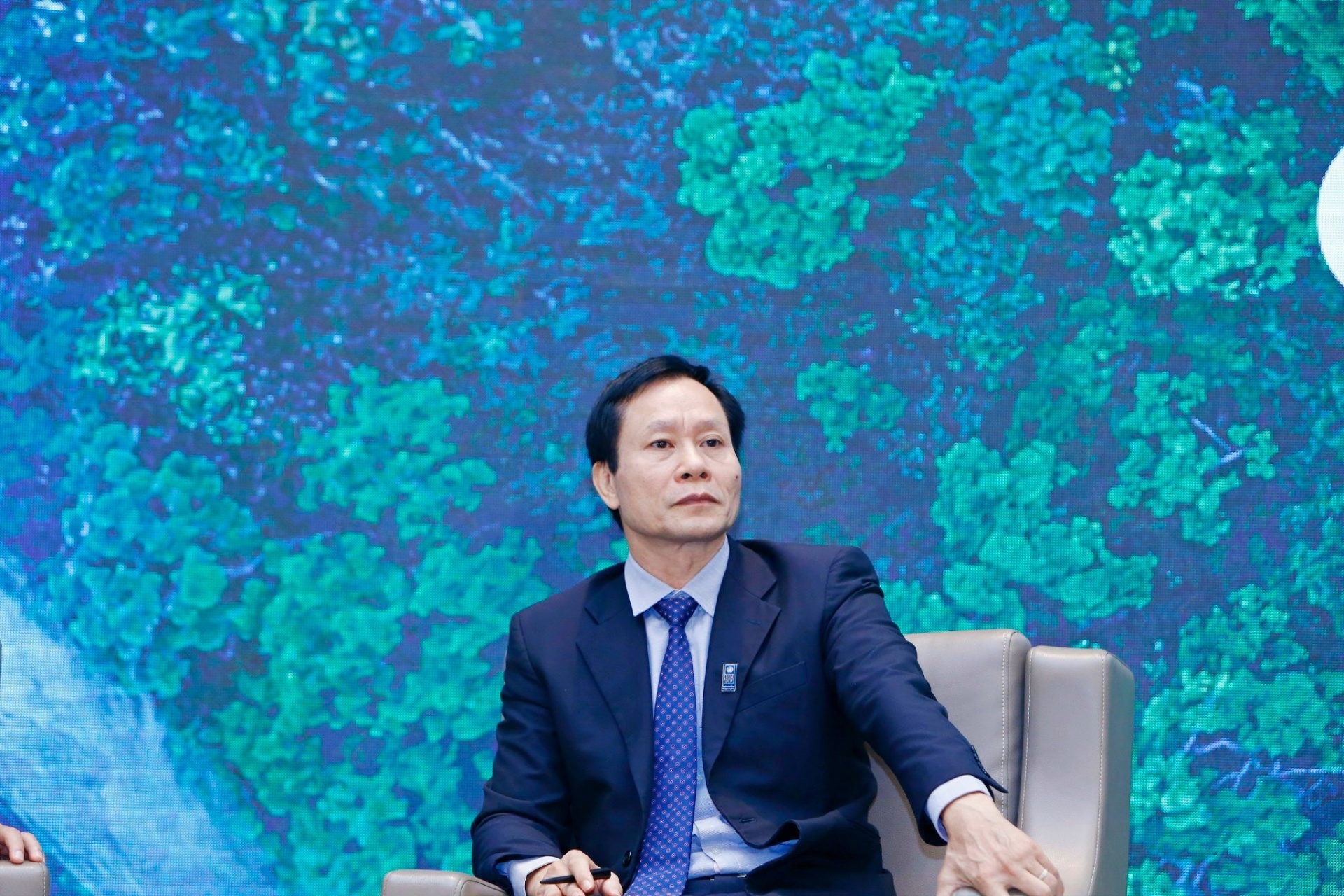 |
| Dao Xuan Lai, head of Climate Change and the Environment at the UN Development Programme in Vietnam |
In the current global corporate landscape, there's a marked trend among conglomerates towards establishing roadmaps for reducing carbon footprints and minimising plastic waste.
This shift aligns with the United Nations' ongoing process to develop a new plastic waste framework by 2024, which is expected to influence international corporations significantly.
In Vietnam, we have noticed that a growing number of conglomerates are adopting renewable energy sources and other sustainable initiatives. This commendable trend should be encouraged and expanded. This move reflects a broader shift towards sustainability in the corporate sector.
Globally, two exemplary alliances are actively promoting these commitments, with one such alliance already present in Vietnam to support energy transition.
Furthermore, the Just Energy Transition Partnership, signed December 2022, is a bold initiative in which $15.5 billion of financing is set to be mobilised for Vietnam’s green energy transition through a recent energy partnership. At the moment, we are coordinating with various ministries to ensure effective resource mobilisation.
However, to truly commit to net-zero, actions need to go beyond CSR and involve more robust interventions. Globally, many countries are pledging to assist Vietnam in developing more renewable energy.
For instance, a potential for renewable energy export from Vietnam to Singapore presents a promising opportunity for Vietnamese enterprises, especially in countries with energy constraints.
Vietnam's commitment to a circular economy in its national strategy, aiming for more efficient resource utilisation, opens doors for businesses to participate in the global supply chain.
Additionally, the implementation of the Carbon Border Adjustment Mechanism is poised to impact sectors like steel, with the EU being a major steel importer from Vietnam. Accordingly, Vietnamese businesses need to adapt proactively before relying on state policy support.
The UNDP is supporting numerous models and enterprises in transitions, such as the production of non-fired bricks and green building conversions.
These solutions, while not excessively costly, offer significant energy savings. Many models are seeing a return on investment within five years, reducing monthly electricity and overall business costs.
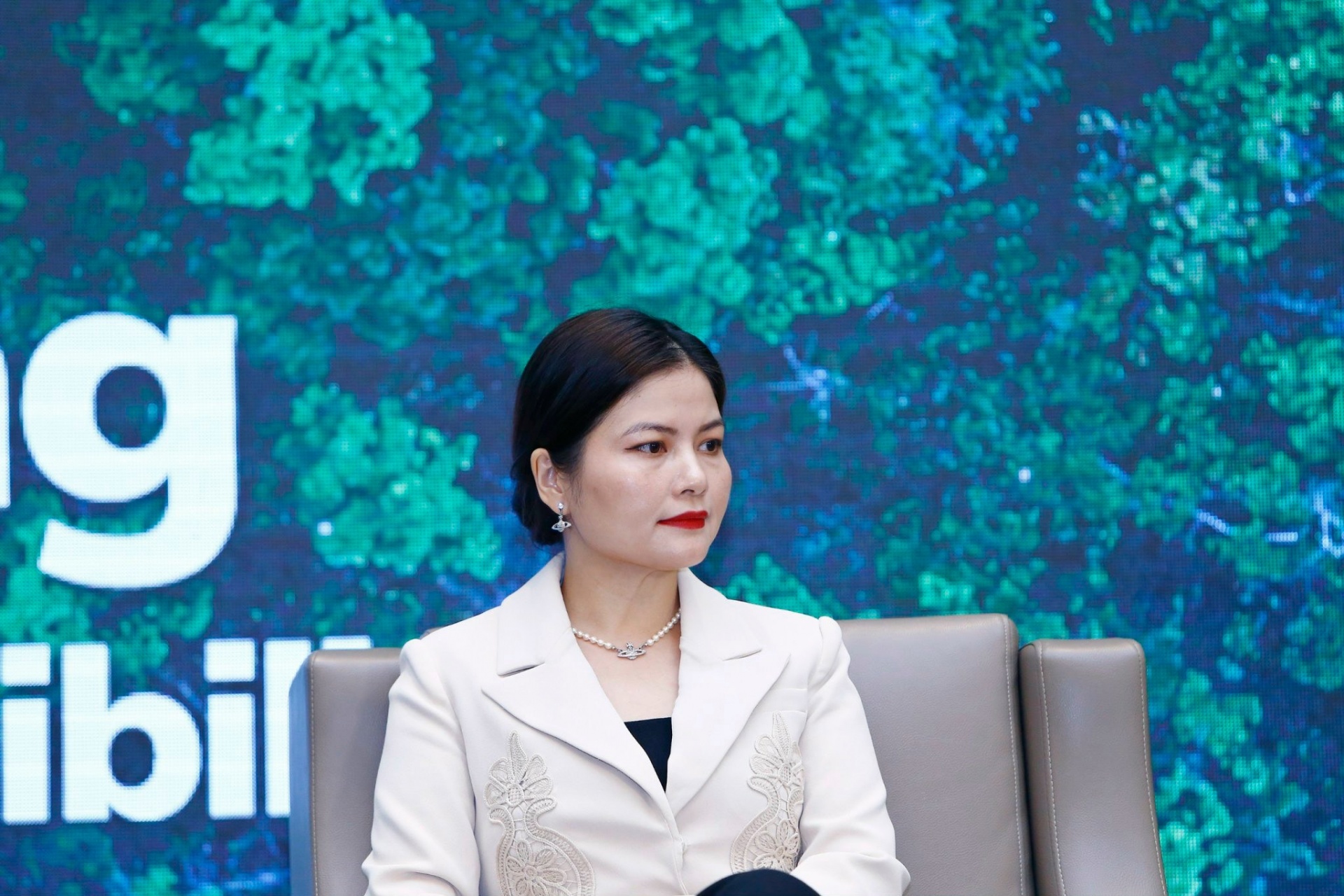 |
| Le Thi Hoai Thuong, senior corporate affairs manager, Nestlé Vietnam |
Nestlé’s goal is founded on scientific calculations, focusing on identifying the areas of highest emissions and formulating effective solutions.
Over 70 per cent of our global emissions come from our supply chain, which is why we are concentrating our efforts in this area. As the largest coffee buyer in Vietnam, Nestlé has been actively collaborating with regulators, agricultural centres, and farmers.
Moreover, we have initiated a farming programme with a strong emphasis on the farmers. We have connected with over 21,000 farming households, assisting them in replanting more than 63 million coffee trees in the Central Highlands. This also includes trialling methods for low-emission cultivation.
Nestlé is leveraging digital technology to calculate input-output efficiency, helping farmers understand the benefits of changing their cultivation practices.
By employing technology, we aim to make sustainable practices more visible and practical for the farmers, ultimately contributing to our overall goal of reduced emissions.
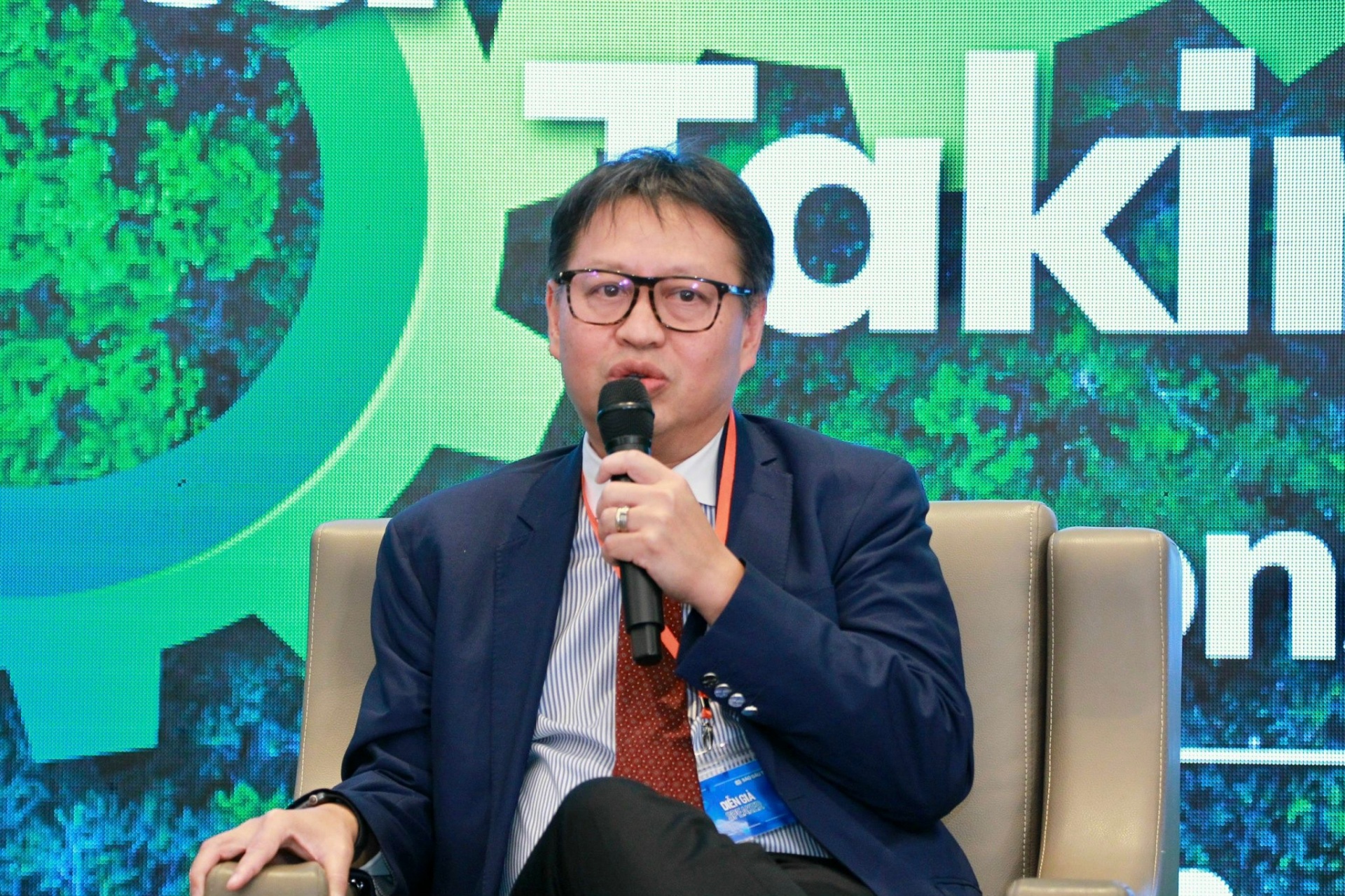 |
| Pham Ngoc Khang, CFO, Home Credit |
Over the past 15 years, Home Credit has catered to the financial needs of more than 15 million customers, maintaining a transparent and serious approach to financial offerings. We have consistently provided customers with suitable interest rates and built sustainable financial products for diverse groups. This steadfast commitment underlines the company's mission and objectives.
A crucial aspect of their strategy is fostering financial literacy among both borrowers and lenders. Educating our clients about the commitment and obligations of borrowing are fundamental to ensuring mutual benefits and building enduring relationships.
Addressing the issue of loan defaults and their impact on sustainable development goals, the representative emphasised the importance of rigorous initial screening to trust customers' repayment capabilities. We offer programmes to help customers understand their debt obligations and manage their finances smartly through initiatives like Home Smart.
Overall, Home Credit's clientele is described as responsible, with many investing in assets like motorbikes. In terms of capital recovery, we have trained processes for debt collection that are professional, transparent, and designed to protect the interests of all parties, thereby ensuring financial transparency.
This strategy not only helps in fostering a culture of financial responsibility but also strengthens the company's position as a transparent and trustworthy financial service provider.
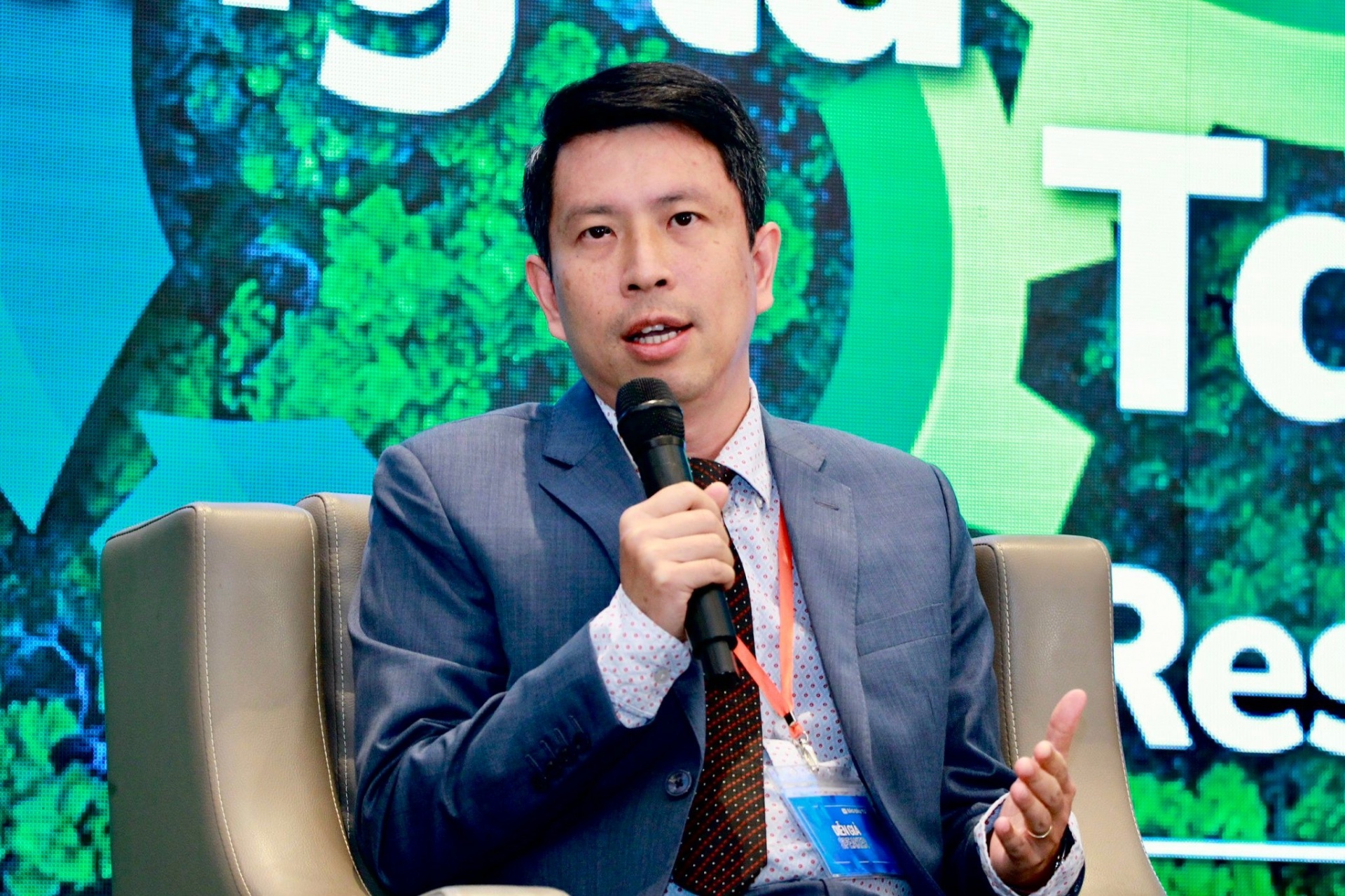 |
| Phan Le Thanh Long, CEO, The Vietnam Institute of Directors (VIOD) |
The VIOD is playing a crucial role in guiding the Boards of Directors of Vietnam's listed companies in integrating environmental, social, and governance (ESG) considerations into their operations.
Our focus is on governance. Board members are the trendsetters and leaders. As businesses are integral to the economy, they play a significant role in contributing to net-zero objectives.
VIOD is dedicated to aiding listed companies to collectively elevate Vietnam's stock market to an emerging market status. Integrating ESG as a part of a company's overall strategy is essential.
Regular inclusion of ESG issues in operational agendas is recommended, with the Board of Directors expected to establish regulations impacting various departments and employees.
Reflecting on a decade of experience in Vietnam's stock market, there has been a noticeable awakening to ESG issues. We are now in the phase of practice and action in green governance. For any business, it's essential to address the interests of all stakeholders. ESG expenditures are investments, not just costs, and they reflect in the company's value.
For example, companies implementing green board practices can access better capital sources, with many investment funds willing to pay a higher price for their stocks. Therefore, investing in ESG is not only important but also a strategic business decision.
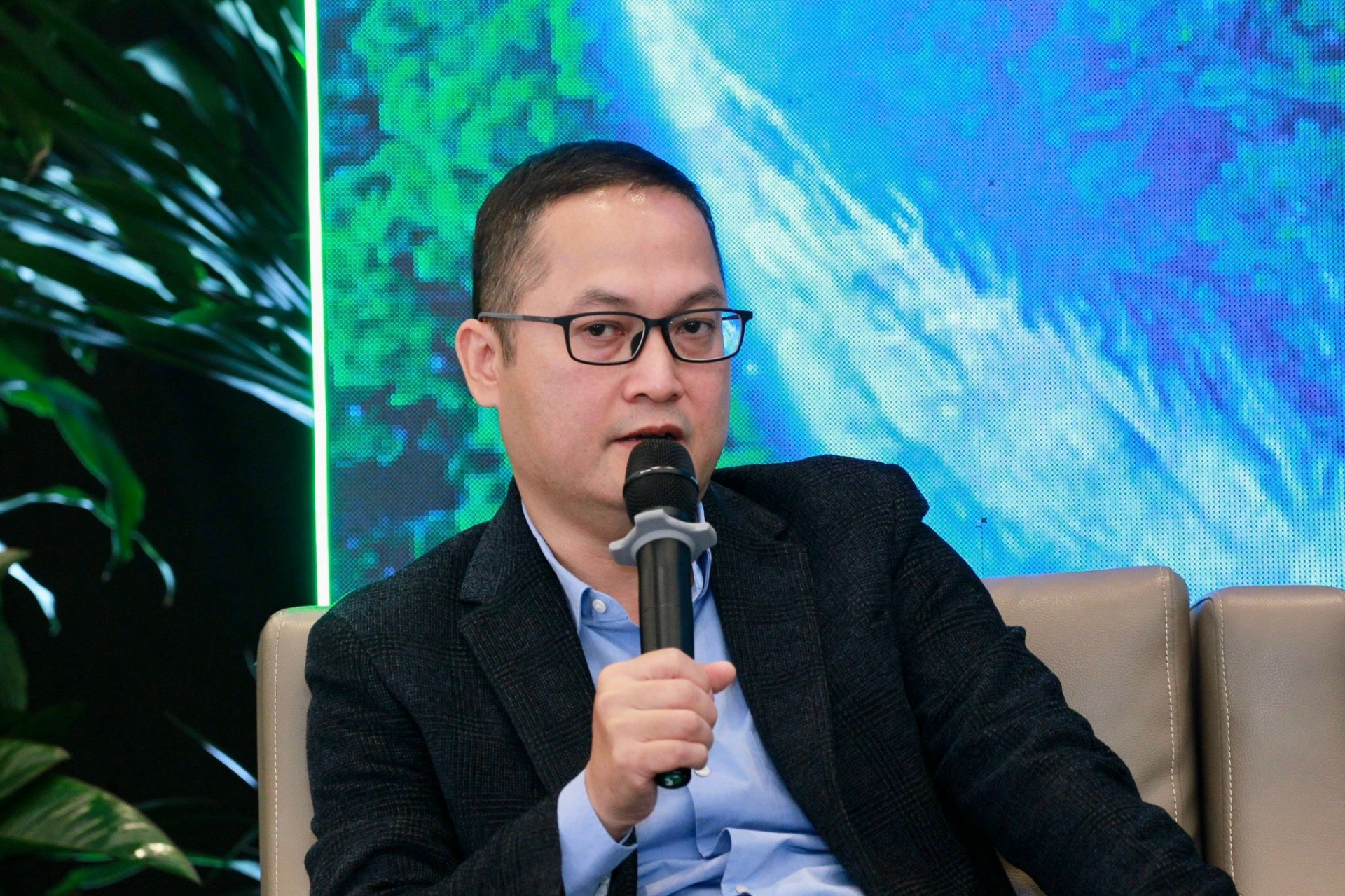 |
| Le Viet Anh, director general of Science, Education, Resources & Environment Department under the Ministry of Planning and Investment |
In the context of sustainable development, the principle of "leaving no-one behind" is imperative, necessitating responsibility towards oneself, family, society, and humanity at large. Vietnam stands as a nation with strong ambitions for sustainable development, setting numerous long-term objectives.
At the local level, various regions are implementing green growth strategies tailored to their unique contexts, significantly impacting local businesses. We are currently developing and will introduce more breakthrough policies in the near future.
The national framework for a green economy is under construction by the Ministry of Planning and Investment, poised to influence investment, banking credit, and other related sectors. Clear policy interventions will serve as a catalyst and incentive for businesses.
The allocation of budget for sustainable development is viewed not as an expense but as an investment in green initiatives and the future.
Wise spending leads the way. We must be resolute in our future-oriented approach, as the benefits far outweigh the costs involved.
The government is expected to play a crucial role in this process. We encourage businesses to actively contribute their opinions so that the government can timely adjust and amend the legal framework to facilitate business operations.
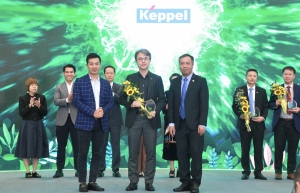 | VIR honours businesses with sustainable development commitments Within the framework of the 2023 Sustainable Development conference, VIR has organised a recognition ceremony to honour enterprises accompanying the cause of sustainable development over the past five years. |
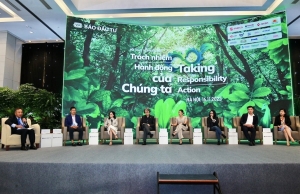 | Views offered at Sustainable Development 2023 conference During the first session of the Sustainable Development 2023 conference on November 16, government and business leaders shared their efforts to implement sustainable solutions and respond to climate change, among other issues. |
What the stars mean:
★ Poor ★ ★ Promising ★★★ Good ★★★★ Very good ★★★★★ Exceptional
 Tag:
Tag:
Related Contents
Latest News
More News
- Momentum is real in the race to net-zero emissions (February 02, 2026 | 08:55)
- $100 million initiative launched to protect forests and boost rural incomes (January 30, 2026 | 15:18)
- Trung Nam-Sideros River consortium wins bid for LNG venture (January 30, 2026 | 11:16)
- Vietnam moves towards market-based fuel management with E10 rollout (January 30, 2026 | 11:10)
- Envision Energy, REE Group partner on 128MW wind projects (January 30, 2026 | 10:58)
- Vingroup consults on carbon credits for electric vehicle charging network (January 28, 2026 | 11:04)
- Bac Ai Pumped Storage Hydropower Plant to enter peak construction phase (January 27, 2026 | 08:00)
- ASEAN could scale up sustainable aviation fuel by 2050 (January 24, 2026 | 10:19)
- 64,000 hectares of sea allocated for offshore wind surveys (January 22, 2026 | 20:23)
- EVN secures financing for Quang Trach II LNG power plant (January 17, 2026 | 15:55)





















 Mobile Version
Mobile Version